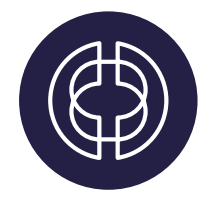We are currently seeking qualified candidates for the position of MEL Advisor for the upcoming USAID/Mali Protective Education for Girls in Mali Activity. This position will be based in Bamako, Mali and is contingent upon award.
Project Description
USAID/Mali through the Protective Education for Girls in Mali Activity aims to increase access to
basic education and foundational learning particularly for girls (age: 6-19) and learners who have
been marginalized due to exposure and/or engagement in the mining industry, with improved
foundational skills and social emotional competencies, even in the face of violence, exploitation
and abuse.
The proposed program aims to enhance educational outcomes by improving access to and
retention in schools through the implementing accelerated learning programs, boosting teacher
well-being and instructional quality, and providing targeted support for girls, in the mining regions of Kayes and Bougouni.
Position Description
The MEL Advisor is responsible for establishing and managing the project’s overall monitoring, evaluation and learning (MEL) system and leading MEL staff to track all progress made towards meeting program/contract results, indicators, and targets, including impacts on access, retention, learning outcomes and teacher outcomes, ensuring that they are being consistently and systematically documented, tracked and reported. The MEL Advisor collaborates with and oversees sub-grantees on data collection and indicator development; analyzes data reported from sub-grantees; and supports training of MEL personnel in quality assurance methods. They will collaborate with the program team to design operations research to support learning, evaluation, and planning, and oversee the implementation, analysis, dissemination, and use of research products. The MEL Advisor shares MEL data and improvement plans and collaborates with staff and stakeholders on strategies for program improvements for greater program effects.
Job Summary/Responsibilities
- Designs and oversees the monitoring, evaluation, and learning activities of the project; leads the design, development, planning, annual revisions, and implementation of the MEL plan and project evaluation activities, including the development and dissemination of tools, materials, reports, papers, and intervention-linked research;
- Develops systems for the timely collection, management, analysis, and reporting of valid and reliable data that meet donor reporting requirements;
- Works closely with the technical team to co-design monitoring tools, select indicators, and determine field monitoring responsibilities;
- Ensures tool compatibility and coordination within the MEL framework, and consistency with national and donor requirements;
- Leads the development of the project learning agenda, designs and implements learning activities and research studies;
- Focuses on strengthening the MEL system, building capacity of partners and staff, and improving alignment and support to host-country MEL systems;
- Co-coordinates the project’s Collaborating, Learning, Adapting (CLA) framework;
- Undertakes periodic reviews of program and/or country MEL systems, and participates in planning MEL system strengthening actions;
- Provides ongoing oversight and technical assistance to consortium partners in implementing monitoring and evaluation system, ensuring data and analysis are of high quality;
- Coordinates knowledge sharing with the technical team;
- Provides guidance on information systems for quality assurance, as well as best practices for documentation and reporting;
- Ensures submission of datasets and other relevant reports and data to USAID knowledge management systems;
- Provides high quality and timely submission of all required project reports, including documentation of success stories, analysis of data for indicator calculation, summary of qualitative findings, etc.;
- Oversees the publication and dissemination of information on successful and promising approaches, lessons learned, and other program results to ministry counterparts, donors, program partners, and other key stakeholders.
Required Qualifications
- Master’s degree required in evaluation, demography, social science, economics, or other relevant discipline;
- At least 8 years of experience required, related to monitoring, evaluating, and reporting on education or social-sector programs required; at least 5 years of MEL experience in the education sector preferred;
- Proficiency with relevant software (Excel, ODK/Kobo, PowerBi, Stata, SAS, SPSS, Epi Info, Atlas);
- Demonstrated expertise in rigorous quantitative and qualitative methods, research, management information systems, reporting, data quality analysis and data analysis;
- Experience in design and implementation of MEL systems; with USAID-funded projects preferred
- Experience with learning assessments preferred;
- Expertise in education research and/or integrating gender equality and social inclusion into MEL systems;
- Experience with Collaborating, Learning and Adapting (CLA) Frameworks and related data utilization;
- Ability to work effectively and collaboratively with stakeholder counterparts, partners and FHI 360 HQ counterparts;
- Solid report writing, analytical, and communication skills, including oral presentation skills; ability to articulate technical information clearly and effectively to both technical and non-technical audiences;
- Solid facilitation skills for training enumerators, counterparts and project and partner staff; additional experience building the capacity of local partners preferred;
- Ability to collaborate effectively with program staff and supervise and develop junior staff;
- Experience in the education sector in Mali or the region strongly preferred;
- Oral and written fluency required in English and French.
This job posting summarizes the main duties of the job. It neither prescribes nor restricts the exact tasks that may be assigned to carry out these duties. This document should not be construed in any way to represent a contract of employment. Management reserves the right to review and revise this document at any time.
FHI 360 is an equal opportunity and affirmative action employer whereby we do not engage in practices that discriminate against any person employed or seeking employment based on race, color, religion, sex, sexual orientation, gender identity, national or ethnic origin, age, marital status, physical or mental disability, protected Veteran status, or any other characteristic protected under applicable law.
Our values and commitments to safeguarding: FHI 360 is committed to preventing any type of abuse, exploitation and harassment in our work environments and programs, including sexual abuse, exploitation and harassment. FHI 360 takes steps to safeguard the welfare of everyone who engages with our organization and programs and requires that all personnel, including staff members and volunteers, share this commitment and sign our code of conduct. All offers of employment will be subject to appropriate screening checks, including reference, criminal record and terrorism finance checks. FHI 360 also participates in the Inter-Agency Misconduct Disclosure Scheme (MDS), facilitated by the Steering Committee for Humanitarian Response. In line with the MDS, we will request information from job applicants’ previous employers about any substantiated findings of sexual abuse, exploitation and/or harassment during the applicant’s tenure with previous employers. By applying, job applicants confirm their understanding of these recruitment procedures and consent to these screening checks.
FHI 360 will consider for employment all qualified applicants, including those with criminal histories, in a manner consistent with the requirements of applicable state and local laws.
FHI 360 will never ask you for your career site username or password, and we will never request money, goods or services during the application, recruitment or employment process. If you have questions or concerns about correspondence from us, please email [email protected].
FHI 360 fosters the strength and health of its workforce through a competitive benefits package, professional development and policies and programs that support a healthy work/life balance. Join our global workforce to make a positive difference for others — and yourself.
Please click here to continue searching FHI 360's Career Portal.
Top Skills
What We Do
FHI 360 is a nonprofit human development organization dedicated to improving lives in lasting ways by advancing integrated, locally driven solutions. Our staff includes experts in education, health, nutrition, economic development, civil society, environment, gender, youth, research and technology – creating a unique mix of capabilities to address today's interrelated development challenges. FHI 360 serves more than 70 countries and all U.S. states and territories.







